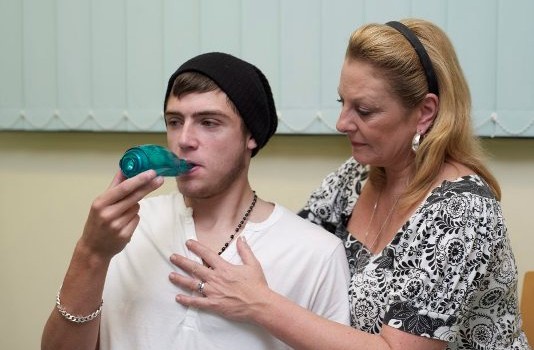A disease or disorder is defined as rare in Europe when it affects less than 1 in 2,000 people.*
There are over 6,000 rare diseases including cystic fibrosis, which affects the lungs and the digestive system, and Huntington’s disease, which causes progressive damage to the brain cells. Examples of lesser known rare diseases are Epidermolysis Bullosa, genetic disorders that result in the fragility of skin, and Lysosomal Storage, a group of rare disorders which can lead to deterioration in the function and structure of the brain, liver and heart.
The majority of diseases classed as ‘rare’ are genetic, serious, chronic and debilitating. Each disease is different but they can affect people in similar ways. Orphan drugs, which are medicinal products, can be used to treat and prevent some rare diseases.
Complications as a result of having a rare disease may mean patients are more susceptible to pneumonia and other infections, injuries related to falls, or other associated developments. This is because rare diseases are progressive disorders.
Cathy Wogan, paediatric respiratory nurse at Heartlands Hospital, said: “It is estimated that there are more than three million people in the UK who have a rare disease, this is one in 17 people. Often inherited from their parents, around 75 percent of rare diseases will affect infants, children and young people.
“Although many of those with a rare condition can live a long and fulfilling life, 30 percent of rare disease patients will die before their fifth birthday.”
It has been recognised both nationally and internationally that rare disease patients and their families need to be provided with as much care and support as possible. For children and adults living with a rare disease, primary care will primarily be provided by family members. Rare Disease Day is to be held on 28 February with this year’s theme being ‘Care’ to highlight the importance of this support.
The UK government has come up with a strategy to improve diagnosis, research and treatment of rare diseases. The strategy highlights that a clear personal care plan should be provided for every patient which will bring together health and care services, in addition to more support being given to patients and their families. Rare Disease Day is all about encouraging everyone to continue finding ways of working together to provide different kinds of care that people living with rare diseases need.
Rare Disease Day is held every February to raise awareness of rare diseases and improve access to treatment for individuals who have rare diseases and their families.
For further information on rare diseases visit the Rare Disease website (http://www.rarediseaseday.org)
* Source: www.rarediseaseday.org







